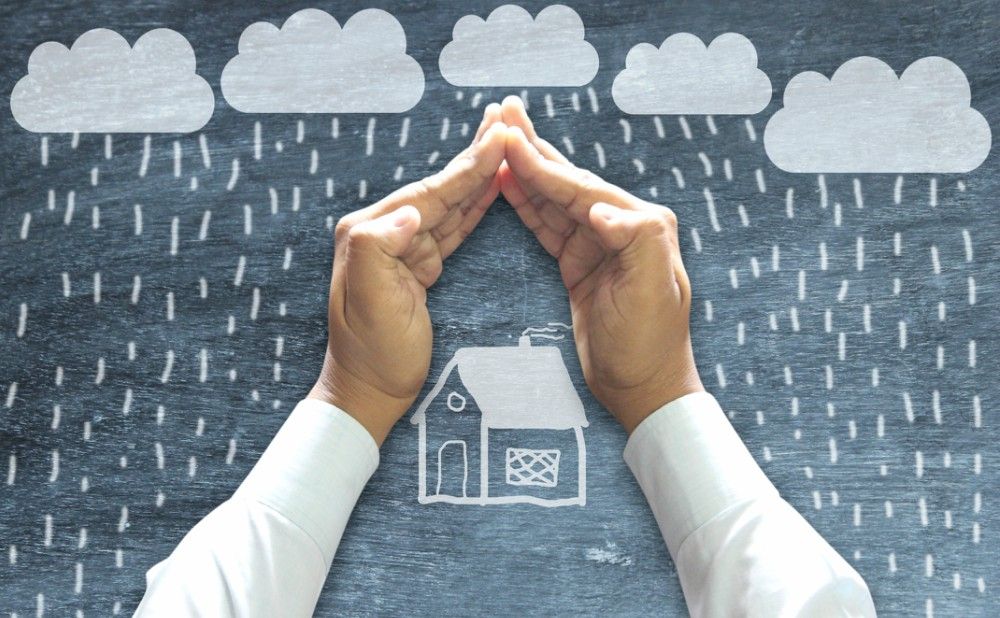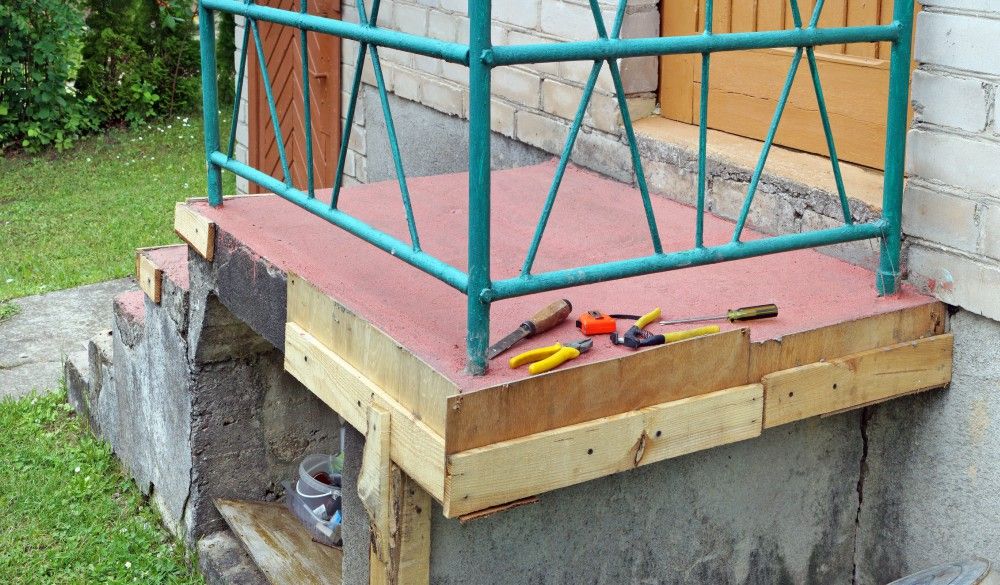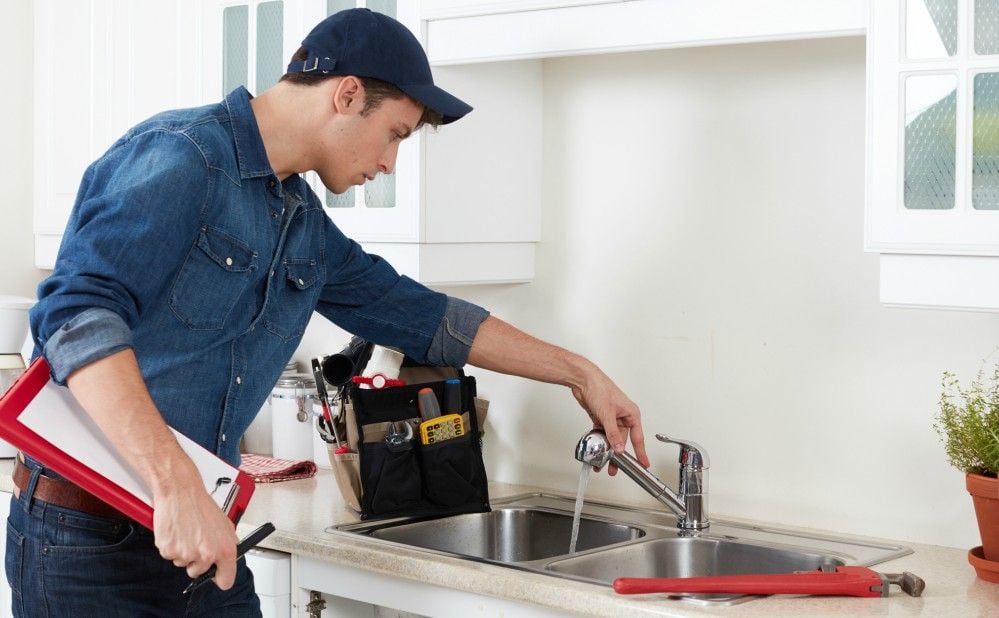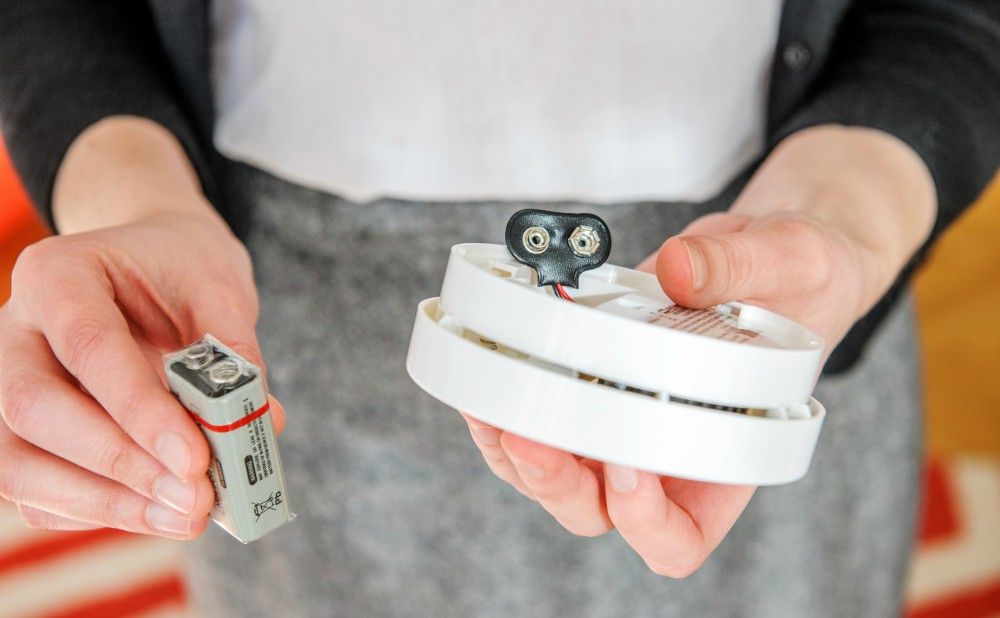
Tenants expect, and have a legal right to, a safe, secure, and healthy place of living when they lease from you.
This means you have an obligation to keep your tenants safe inside your investment property, secure from outside intrusions, and protected against any health concerns.
Unfortunately, if you don’t take the time to thoroughly inspect your Bethesda rental property regularly, issues tend to creep up and accidents happen.
However, a lot of that is preventable with routine property inspections, and a little bit of knowledge about how to keep your property safe for your tenants.
Enlisting the help of Bethesda property management is one great way to tackle rental property safety.
However, there are things you can do on your own to ensure your tenants feel safe while leasing your property.
Rental Property Safety Checklist
In the past, we have discussed extensively how to keep your tenants safe while residing in your rental property.
In fact, we even suggested that using the knowledge, experience, and maintenance crew a high quality property management company provides is the best way to keep your tenants safe, secure, and happy.
That said, empowering yourself with the details can be helpful when it comes to rental property safety.
And, while your property manager is well equipped with information regarding Maryland rules and regulations as they pertain to rental property safety, brushing up on your knowledge using this helpful rental property safety checklist is highly recommended.
1. Exterior

The exterior of your rental property is not normally the first place that pops into mind when you think about tenant safety.
However, that doesn’t mean that you should ignore the safety of this part of your rental.
Here are some of the most crucial safety issues you and your property manager should concern yourselves with when it comes to the exterior of your rental:
- The entire framework of your property should be sound and secure
- All exterior portions of your property – the roof, foundation, and other exterior surfaces – must keep rodents and pests out at all times
- Walls should have no visible holes, breaks, or rotting timber that would allow dampness to enter the property during rainy seasons
- Roofs must have adequate drainage of rainwater to prevent structure wall deterioration
- Any exterior surfaces made of metal or wood must be painted, weatherproofed, and sealed to prevent deterioration
- Awnings, stairways, and overhangs must be secure at all times to keep them from falling, and also to protect them from decay and rust
- Stairs, porches, balconies, and fire escapes must be able to handle their anticipated loads without collapsing
- Windows, doors, and frames must prevent wind from entering the property, as well as rainwater and rodents, or other pests
- Any windows used for ventilation and/or emergency escapes must easily open from the inside and be held in place using proper hardware
- All exterior stairways and exits must be illuminated to discourage intrusion
- Lighted pathway to the house for your tenants
- All exterior door locks must be tightly secure and in good repair
- From April 1 to December 1, it is your duty to provide tight-fitting screens for all doors, windows, or other openings used for ventilation
In addition, your Bethesda rental property may undergo inspection by the County Building Engineer.
If that happens, inspectors will require you to fix the following issues if anything is missing or deteriorating:
- Any exterior features that create an unsafe condition for your tenants
- Rotting of exterior walls or vertical supports that hold the property together
- Deterioration of roofs or other horizontal features, such as balconies
- Issues with exterior chimneys
- Plaster or masonry that is crumbling, falling off, or otherwise deteriorating
- Degraded weatherproofing on any exterior walls, roofs, or foundations
- Any broken windows or doors
As you can see, Maryland does a good job of ensuring that your tenants will be safe from both the obvious safety and health issues that threaten the exterior of your rental property, as well as the lesser-known issues landlords may not know to look for during property inspections.
2. Interior

It can sometimes be easier to spot safety and health issues on the interior of your rental property.
However, it is always a good idea to familiarize yourself with the things the authorities are going to look for during property inspections, to make sure everything is safe and secure.
While there are many places to check on the interior of your rental, today we are going to focus on the plumbing, as there are plenty of rules and regulations concerning the plumbing:
- Kitchen, bathroom, and toilet floors must be significantly waterproof, for sanitation reasons
- All interior structures found with rodent or pest infestations must be treated in a way that is not harmful to your tenant’s health
- There must be a separate room with a toilet and cold running water that affords your tenants privacy
- Nearby each toilet there must be a sink with hot and cold running water
- Each property must have at least one room equipped with a bathtub or shower that has hot and cold water running water that affords your tenants privacy
- All fixtures, vents, drains, and water supply lines must work properly and be free of any leaks or defects
- Plumbing fixtures must not only work properly, but must avoid inviting rodents or pests in, as well as never emit dangerous or offensive gases and odors
- Hot water must run from each faucet at a temperature of at least 110 degrees Fahrenheit
Although this may seem tedious, it is important to know what is expected in your rental property when it comes to plumbing issues.
3. Smoke Detectors and Carbon Monoxide Alarms

There is sometimes confusion over whether maintenance of smoke detectors and carbon monoxide alarms are the responsibility of the landlord or the tenant.
Smoke Detectors
Property owners in Bethesda must install at least one electronic smoke detector in each residential property or unit.
Additionally, properties built before 1976 must include a battery-powered backup.
Every three years, property owners must submit written verification by a licensed electrician or the County Fire Department and Licenses that the smoke detector has been installed as required by law.
This verification will also certify that the detector is in good working order.
Carbon Monoxide Alarms
When it comes to carbon monoxide alarms, Maryland takes a hard stance.
To start, all rental properties that have fuel-burning equipment installed must have a working carbon monoxide alarm.
Each alarm must be installed in the common area of the property.
In addition, your tenants must be able to hear the alarm that is installed in the bedroom areas.
It is important to note that the carbon monoxide alarm sound must be easy to distinguish from the smoke detector’s sound.
Lastly, upon installing and testing each carbon monoxide alarm in your rental property, you are required to provide written documentation to at least one adult tenant in your rental instructing them how to maintain and test the alarm.
Have this tenant read and sign the document and keep it for your records.
Tenants leasing from you must do the following:
- Test and maintain carbon monoxide alarms according to the manufacturer’s instructions
- Replace batteries when needed
- Notify you, via written certified mail, of any malfunctions
If you receive written notification that the carbon monoxide alarm is malfunctioning, you are then responsible for the repairing or replacing it.
Ensuring the safety and health of your Bethesda rental property and, more importantly, your tenants is serious.
It is your legal responsibility to make sure that your investment property is up to code and does not present any safety issues to those leasing from you.
And, one of the best ways to do this is to educate yourself about the state and local laws.
In addition, by regularly inspecting your rental property, you will be able to make sure that any maintenance, safety, or health concerns are addressed quickly, and do not affect your rental property business.
Better yet, by contacting a property management company such as Bay Management Group, you will have access to knowledgeable property managers and a reliable maintenance crew that can help you prevent any major safety issues, and can repair any minor maintenance issues that pop up during your tenant’s lease term.
